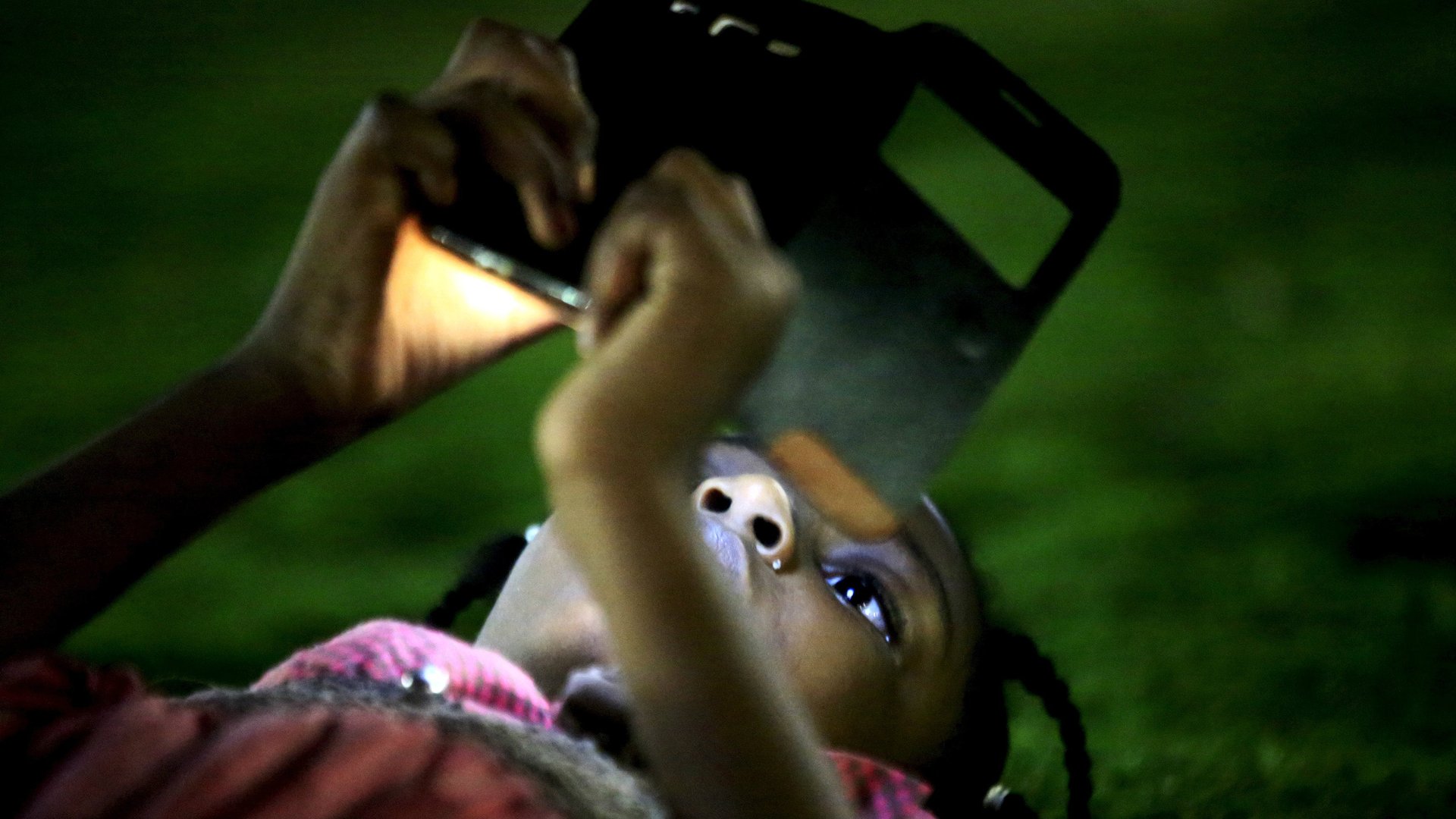Facebook’s “poor internet for poor people” in Africa is better than no internet at all
Yesterday’s (Oct. 5) announced partnership between Facebook and the French communications firm Eutelsat was a step toward CEO Mark Zuckerberg’s ambitious goal to ”beam internet to people from the sky” to the world’s unconnected via his initiative Internet.org.


Yesterday’s (Oct. 5) announced partnership between Facebook and the French communications firm Eutelsat was a step toward CEO Mark Zuckerberg’s ambitious goal to ”beam internet to people from the sky” to the world’s unconnected via his initiative Internet.org.
“In providing reach to large parts of Sub-Saharan Africa, Eutelsat and Facebook will each be equipped to pursue their ambition to accelerate data connectivity for the many users deprived of the economic and social benefits of the Internet,” according to a statement.
But despite the declared philanthropist aims of Internet.org, the project is not without its critics, some of whom have called it economic racism: “poor internet for poor people.” In May, over 60 advocacy groups wrote an open letter to Zuckerberg arguing that the initiative violates fundamental principles of net neutrality and the open internet. Facebook is ”building a walled garden in which the world’s poorest people will only be able to access a limited set of insecure websites and services,” they said. Similar concerns in India contributed to Facebook losing key partners in its efforts to deliver the service in the country.
So when the news of Facebook using satellite to beam free internet broke, some saw it as another step in Facebook’s strategy of gobbling up users among the so-called next billion people who are about to come online—many of whom will likely only know the internet via Facebook.
This may be the case, but surely having access to some version of the internet is better than having no online access at all. Africa remains the least connected region in the world, with internet penetration at about 21%.
This is despite the continent boasting one of the highest mobile penetration rates in the world. But the lack of a viable infrastructure has hindered deeper connectivity (paywall), especially in remote parts. This has meant that data services are usually expensive, leaving many unable to afford internet access.
This is the gap that the likes of Facebook, Google and others are trying to plug. Whether their motives are self-interested or not, the undeniable consequence of their efforts has been to provide access to some form of the internet for folks who didn’t have it before. In Kenya, for example, Internet.org is allowing users access, for free, to such sites as BBC News, BBC Swahili, Facebook, Messenger, SuperSport and Wikipedia. Facebook says the service has connected nine million people to the internet. Surely, this is better than no internet at all.
Perhaps, criticism of the social media giant is ideological purity getting in the way of progress. As one analyst put it, critics of Internet.org are in danger of falling into a classic trap of perfection being the enemy of the good.